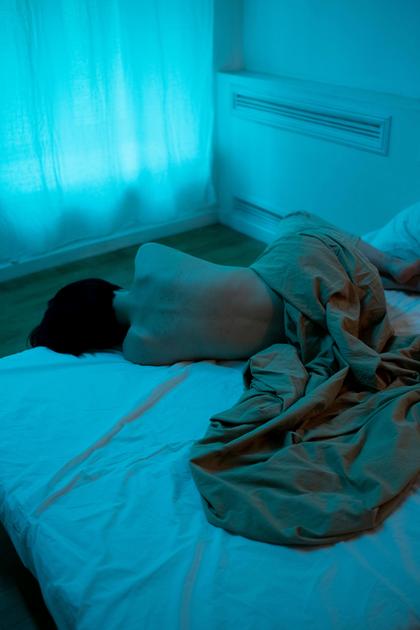Are you struggling to find a restful night’s sleep? Bedroom mistakes that block deep sleep for women over 30 may be the hidden culprits behind your fatigue and unrest. It’s not uncommon for many women to experience insomnia, hormonal imbalances, and anxiety as they navigate this vibrant phase of life. This article will delve into common habits and environmental factors that disrupt your sleep, offering insights on how to create a sanctuary in your bedroom that promotes deep, rejuvenating rest.
How Your Bedroom Setup Affects Sleep Quality
Your bedroom is your personal sanctuary, but did you know that its setup can significantly impact the quality of your sleep? Many women over 30 find themselves tossing and turning at night, not realizing that their sleep environment might be the culprit.
A cluttered bedroom can lead to a cluttered mind. When your space is disorganized, it may create feelings of stress and anxiety, making it hard to unwind. Consider rearranging furniture to create a calmer layout, and ensure your bed is the centerpiece of comfort.
If your bedroom is full of distractions, such as electronics or work materials, it might be time for a digital detox. Removing these items from your sleeping space can help signal to your brain that it’s time to rest.
The Role of Lighting in Achieving Restful Sleep
Lighting plays a crucial role in regulating your sleep-wake cycle. Bright lights during the evening can trick your body into thinking it’s still daytime, which can disrupt melatonin production—a hormone essential for sleep.
Consider implementing soft, warm lighting in your bedroom. Dimmer switches or smart bulbs that adjust color temperature can create a calming atmosphere conducive to sleep. Additionally, heavy curtains or blackout shades can help block out unwanted light from street lamps or early morning sun.
Importance of a Comfortable Mattress and Pillows
A comfortable mattress is paramount for restful sleep. If you’re waking up with aches and pains, it may be time to evaluate your mattress. The right balance of firmness and support is key to ensuring that your spine stays aligned throughout the night.
Don’t forget about your pillows! Choose pillows that cater to your sleeping position—whether you sleep on your back, side, or stomach. Investing in high-quality bedding can transform your sleep experience.
Decluttering Your Space for a Peaceful Mind
Closets overflowing with clothes and nightstands piled high with books can add to feelings of chaos. Decluttering your bedroom can significantly improve your mental clarity and make it easier to settle down for the night.
Start small: tackle one area at a time. Perhaps begin with your nightstand drawers. Clear out items that no longer serve you or that add to your stress. A tidy bedroom leads to a peaceful mind and a more inviting sleep environment.
Impact of Noise on Sleep and How to Mitigate It
Noise is an often-overlooked factor when it comes to achieving deep sleep. Whether it’s traffic sounds, loud neighbors, or an active partner, disruptive noises can prevent you from reaching the deeper stages of sleep.
Consider using white noise machines or soothing sounds, such as nature tracks, to drown out the disturbances. If possible, soundproof your bedroom with thick curtains or by sealing any gaps in windows or doors. Creating a calming soundscape can significantly enhance your sleep quality.
The Connection Between Temperature and Sleep Quality
The temperature of your bedroom can affect your ability to fall asleep and stay asleep. Ideally, bedrooms should be kept between 60 and 67 degrees Fahrenheit for optimal comfort.
Invest in breathable bedding materials and consider using a fan or air conditioning during warmer months. During colder months, layering with blankets can help regulate your body’s temperature. Keeping your space at a comfortable level can lead to a more restful sleep.
Why Bedtime Routines Matter for Deep Sleep
Establishing a bedtime routine signals to your body that it’s time to wind down. A consistent routine can greatly enhance your ability to fall—and stay—asleep.
Consider incorporating calming activities before bed, such as reading, stretching, or meditative practices. Dimming the lights and avoiding screens 30 minutes before bedtime can also help transition your body into sleep mode. Creating a ritual around good sleep is vital for women over 30 who often juggle numerous responsibilities.
Emotional Clarity: Addressing Anxiety Before Bed
Many women experience heightened anxiety, especially during the transition into their 30s and beyond. This emotional turbulence can interfere with your sleep quality.
Before bed, take time to reflect on your day. Journaling can be a therapeutic way to express thoughts and feelings. Consider writing down three things you are grateful for or anything that may be weighing on you. Releasing these emotions can help quiet the mind and make room for rejuvenating sleep.
Nutrition Tips for Better Sleep Hygiene
The role of nutrition in achieving restful sleep is often underestimated. Certain foods can promote relaxation, while others may keep you awake. Avoid heavy meals close to bedtime, and try to limit caffeine and alcohol consumption.
Incorporate sleep-friendly foods into your diet, such as bananas, almonds, or chamomile tea. These foods can work synergistically to help prepare your body for a restful night’s sleep. A small, healthy snack before bed can help keep your blood sugar stable, aiding in deeper sleep cycles.
Creating a Sleep Sanctuary: Simple Changes to Make
Transforming your bedroom into a sleep sanctuary doesn’t require a complete overhaul. Simple changes like adding plants or using calming scents can significantly improve your sleep experience.
Consider using a diffuser with essential oils, such as lavender or eucalyptus, to enhance relaxation. Incorporate calming colors into your decor, like soft blues or greens, which can promote tranquility.
Creating a cohesive and peaceful environment helps set the stage for sleep each night. Fostering a space that feels relaxing and inviting can impact your overall mood and health.
Click here to see how many women are solving sleep issues without heavy medications.
In conclusion, addressing these common bedroom mistakes can lead you down the path toward improved sleep quality. Remember, making simple, intentional changes can have a profound effect on your nightly rest. You, too, can discover the joy of deep sleep by following these steps, just like many other women have!”







